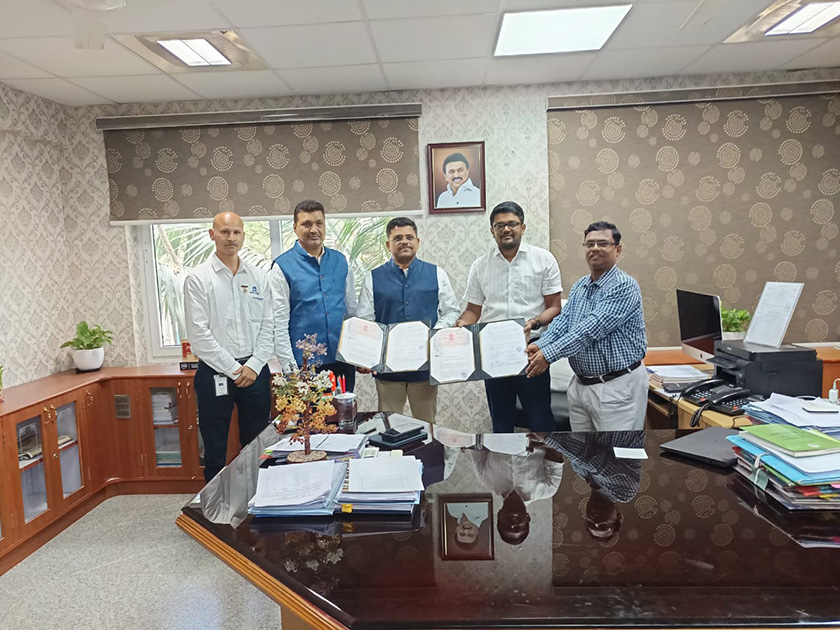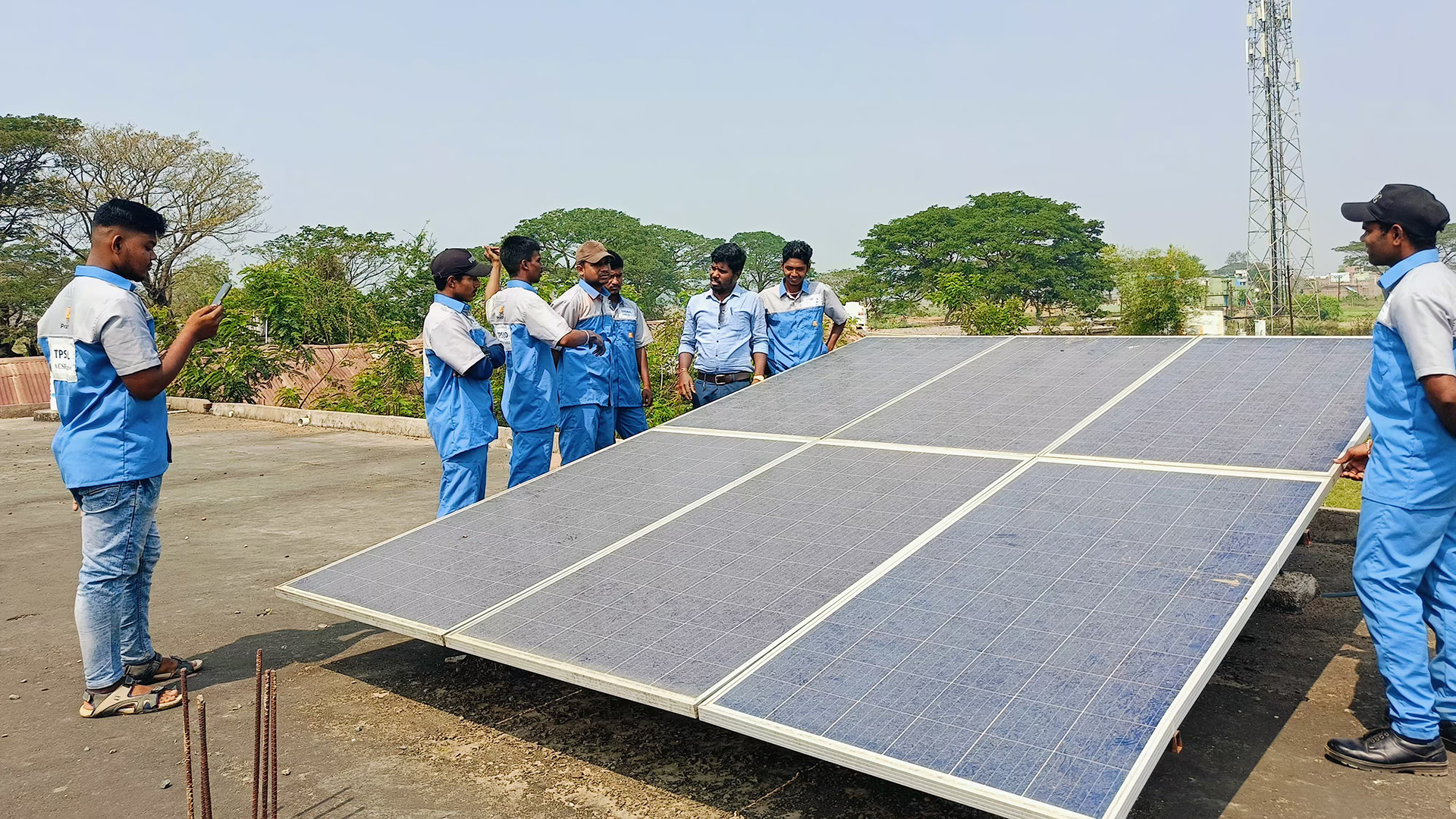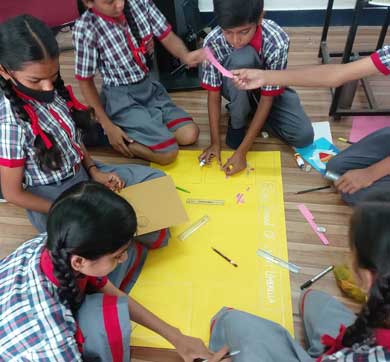October 2025 | 649 words | 3-minute read
In October 2024, India’s renewable energy capacity crossed 200GW, making up 46.3% of the total 452.69GW power generation capacity, further intensifying the need for skilled labour. However, reports indicated a skill gap of around 1.2 million, with that number set to rise to 1.7 million by 2027. In fact, the International Labour Organization (ILO) has predicted that India’s shift to a green economy could add three million jobs in the renewables sector alone by 2030.
In this scenario, the urgency to skill a large labour force for the renewables sector has never been more pressing. Responding to this requirement, Tata Power, through its skill development institute, Tata Power Skill Development Institute (TPSDI), has partnered with the Directorate of Employment and Training (DET), Government of Tamil Nadu, to establish Solar Skill Centres of Excellence (SCOEs) across the state. The partnership, marked by the signing of an MoU, will lead to the establishment of SCOEs at four Government ITIs in Pettai, Thoothukudi, Sattur, and Virudhunagar.
These centres will provide training in solar energy and related fields such as wind and green hydrogen. The partnership aims to equip youth with relevant skills for employment in the renewable energy sector and help attain sustainability in the power sector.

As a part of this collaboration, TPSDI will lead content development, training delivery, and assessments, while DET will support with infrastructure and outreach through its ITI network. “Through TPSDI, we are at the forefront of building a skilled green workforce in alignment with India’s clean energy and green skilling goals,” says Himal Tewari, CHRO, Chief - Sustainability & CSR, Tata Power. “Building on our partnership with the Government of Tamil Nadu, we aim to expand similar collaborations across the country to accelerate inclusive growth and support the nation’s renewable energy transition.
The collaboration reflects a joint commitment to skill development and supports Tamil Nadu’s broader renewable energy goals. Additional centres may be added in the future based on DET’s identification of new locations. “This partnership with TPSDI marks a transformative step towards strengthening the vocational training ecosystem and the renewable energy talent pool in Tamil Nadu,” says B Vishnuchandran, IAS, Director of Employment and Training, Government of Tamil Nadu, adding, “By integrating industry-relevant training into the ITI ecosystem, we aim to empower our youth with future-ready skills that align with the state’s vision of becoming a frontrunner in green energy and employment initiatives.”
The MoU was signed by Alok Prasad, Head, TPSDI, and Mr Vishnuchandran, in the presence of T Rajashekar, Additional Director, DET, and JC Mistry, Advisor, Tata Power.
Since its inception, TPSDI has trained over 3.5 lakh individuals across various domains like Green Energy (solar energy, wind, green hydrogen, pumped hydro storage), Transmission & Distribution, Generation and Safety domains that are aligned with emerging industry needs. Recently, the Institute was also accredited as a Dual Awarding Body (AB-Dual) under NCVET, enabling it to assess, certify, and award qualifications to its learners independently. With a strong pan-India presence, TPSDI operates 11 training centres across key locations including Maharashtra, Gujarat, Tamil Nadu, Uttar Pradesh, Kerala, Jharkhand, Rajasthan and Odisha. Annually, TPSDI trains over 80,000 individuals, with 33% receiving training in the green energy sector. Notably, 40% of the youth trained are women, reflecting TPSDI’s strong commitment to gender inclusivity.
Tata Power also runs India’s largest single-location 43GW Solar cell and 4.3GW Module manufacturing plant at Tirunelveli in Tamil Nadu. The plant comprises 80 per cent women operators, a testament to the company's commitment to inclusive growth and green skilling among youth.
By partnering with government bodies and leveraging industry insights, TPSDI continues to bridge the skill gap in the country’s clean energy sector and enable communities to participate meaningfully in the shift toward sustainable energy.













